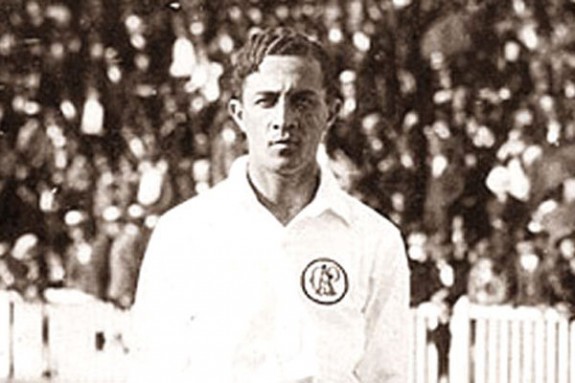Brazil vs. Germany
2014 FIFA World Cup. First semifinal. 8 July 2014.
Estádio Mineirão, Belo Horizonte
17:00 local time (4:00 pm US/ET, 22:00 CET)
This is a story of German immigrants, Brazilian struggles, and a lot of blank pages still to write.
--------------------------
The German Brazilians
--------------------------
The most interesting histories of Germans and Brazilians are off the pitch, but still firmly along the sidelines. In the late 19th-early 20th century, Brazil saw a massive influx of European immigrants seeking opportunities. These were mostly Spaniards, Italians, and Portuguese, but a number of Dutch and German colonies also settled in the South-Eastern coast, especially in São Paulo, Santa Catharina, and along the Rio Grande. Deutschbrasilianer remain an important Paulista ethnicity to this day, though making up a small percentage of Brazilians as a whole, and the Riograndenser Hunsrückisch West German-East Brazilian hybrid dialect is still spoken in the area.
.jpg) |
| S.C. Germania in 1904, with founder Hans Nobiling (fourth from left). |
(Due to large distances, slow economic development, and lack of reliable transportation, Brazil didn't get a national league until 1959 with the birth of the Campeonato Brasileiro Série A, also known as Brasileirão. Today regional championships like the Paulista, the Carioca, the Pernambucano, the Mineirao, and so on retain a sliver of their former glory and importance, but they do subsist, and are used primarily as "warm-up" championships from January to May, during the Brasileirão off-season).
 |
| Friedenreich at Paulistano; undated photo but probably 1916-17. |
Nicknamed "El Tigre," the tiger, Friedenreich would go on to represent Brazil in a number of international competitions. With him Brazil won the Copa America in 1919 and 1922. Friedenreich was hailed the "king of football" during the Paulistano tour of Europe in 1925, in which he also scored a hat trick in a 7-1 routing of France. Some hail that (comparatively) ragtag Seleção as one of the greatest national teams of all time. Based on results alone, it is hard to deny that.
 |
| Copa America 1919. |
---------------
The World Cup
---------------
As nations, Germany and Brazil have little history outside of Brazil's participation in World War I and World War II. The same is true of them as footballing nations: aside from a few friendlies and near-irrelevant games in the Confederations Cup, Brazil and Germany have only competed once: the 2002 World Cup final. Much can be said about that game (for example here, here, here, and here; you can watch the game in its entirety here), but perhaps it is more famous for being the decent final act of a tournament that is almost universally considered (1, 2, 3) a farce because of bad hosts and worse refereeing. Also, Rivaldo decided to take up diving, which was both entertaining and infuriating (video).
 |
| Ronaldo in the 2002 World Cup final in Yokohama, Japan. |
The stakes are very high today. After 2002, the DFB has undergone massive socioeconomic restructuring, abandoning Beckenbauer's spectacular star-studded Fußball and preferring Klinsmann's more pragmatic approach. The results have been relatively wanting after back-to-back narrow semifinal defeats, in 2006 to Italy and 2010 to Spain (plus a Euro 2008 final loss, again to Spain). Third-place matches are great for Portugal and Uruguay, but it is not where Germans want to be: Die Mannschaft deserves the final, and they know it.
On the other side of the pitch stands an unprecedented Seleção. I have already discussed Brazil's stakes in this tournament, and now Neymar's injury and captain Thiago Silva's suspension have added to that. Tonight Brazil might play with all the reckless determination of a wounded and terrified animal engaged in a Malthusian struggle for its survival; or perhaps with the meekness of a beaten puppy who is afraid of being hurt more. It is hard to say how the psychology goes, especially since -- as my wise father continuously reminded me -- no performance can be explained by analyzing one team alone: 22 play football, not 11. So while the Brazilian reaction will rest in part on the shoulders of their other leaders like Julio Cesar and David Luiz, as well as on the decibel level of the torcida at the Estádio Mineirão in Belo Horizonte, it will also depend on Germany. If I were Löw, I would tell them to storm the Brazilian castle and take no prisoners... but I know that is not his style.
Brazil have won five World Cup titles: 1958, 1962, 1970 (the Pelé triple), 1994, and 2002. That is the most of all time. Germany have won three: 1954 (the Miracle of Bern), 1974, and 1990. Between them stand only Italy's four titles, and the rest of the world lies far behind. This rivalry could have been storied, but instead it is tinged with the mutual respect and proper distance of confident powerhouses.
Until tonight.
.
.
.


No comments:
Post a Comment